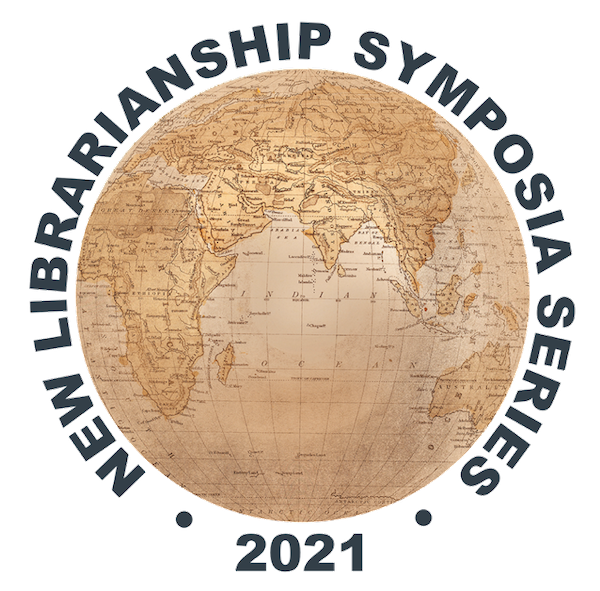Submission Type
Paper Abstract Submission
Symposium Selection
Equity, diversity, and inclusion
Keywords
peer-to-peer, learning, young professionals, Africa, international, public libraries
Abstract
In 2014/15, we commissioned research into how and why public libraries innovate, and what encourages take-up of innovative practices by public libraries in developing countries. One of the main findings was that peer-to-peer activities are essential for public library innovation. Besides facilitating learning and ideas exchange, they create a platform for mutual support, when initiating a new service. Library visits, in which librarians can see innovative services 'in situ', and events like workshops and other training, and conferences, where they mingle and exchange practical experiences, and work together on projects, are effective channels for inspiring innovation (Femenía, A. M. G., Sadunishvili, R. & Lipeikaite, U., 2015).
Guided by these findings, in 2017 we launched the Initiative for Young African Library Innovators (IYALI), an international learning experience that connects young African public librarians with their peers from other countries and continents, and creates opportunities to expand their professional horizons, explore new service ideas, and reflect on and share their own work in a global context.
From 2017 to 2020, four groups of African library professionals aged under 35 years took part in IYALI programmes, visiting Europe, Asia and North America, hosted by partners in different countries. Each IYALI programme included 3 elements: a short, face-to-face, and very intensive workshop on public library innovative services in Africa and the host country; library visits programme, and sharing and networking in an international library conference. Feedback was extremely positive: the experience surpassed learning expectations of participants, and had a transformatory effect on their attitudes towards public libraries, the library profession, and themselves as professionals. The programme also built the confidence of young professionals to share and implement new ideas and solutions in their public libraries, and led them to join national and international librarians’ networks.
IYALI was designed to facilitate peer-learning experiences, knowledge exchange, and emotional connectedness with each other and a global library community in order to provide a transformative experience in quite a short (one- or two- week) period. Instead of a pre-set learning curriculum, we opened an opportunity to shape an agenda from the start, and through sharing, hands-on demonstrations and reflecting in a carefully calibrated environment, with participants taking responsibility for their own learning.
At the symposium, we want to share a case of building an inclusive, two-way international peer-to-peer learning experience that unlocks the potential to innovate in local contexts, broaden and deepen participants' understanding of international library practices.
References
EIFL Initiative for Young African Library Innovators (2017). Available online at: https://www.eifl.net/eifl-in-action/initiative-young-african-library-innovators-iyali
Femenía, A. M. G., Sadunishvili, R. & Lipeikaite, U. (2015). What sparks innovation in the public library sector? Evaluation of the take up of PLIP innovation by other libraries. EIFL Public Library Innovation Programme. Available online at: http://www.eifl.net/resources/what-sparks-innovation-public-library-sector
Included in
Peer learning experience to grow public library innovation: the Initiative for Young African Library Innovators
In 2014/15, we commissioned research into how and why public libraries innovate, and what encourages take-up of innovative practices by public libraries in developing countries. One of the main findings was that peer-to-peer activities are essential for public library innovation. Besides facilitating learning and ideas exchange, they create a platform for mutual support, when initiating a new service. Library visits, in which librarians can see innovative services 'in situ', and events like workshops and other training, and conferences, where they mingle and exchange practical experiences, and work together on projects, are effective channels for inspiring innovation (Femenía, A. M. G., Sadunishvili, R. & Lipeikaite, U., 2015).
Guided by these findings, in 2017 we launched the Initiative for Young African Library Innovators (IYALI), an international learning experience that connects young African public librarians with their peers from other countries and continents, and creates opportunities to expand their professional horizons, explore new service ideas, and reflect on and share their own work in a global context.
From 2017 to 2020, four groups of African library professionals aged under 35 years took part in IYALI programmes, visiting Europe, Asia and North America, hosted by partners in different countries. Each IYALI programme included 3 elements: a short, face-to-face, and very intensive workshop on public library innovative services in Africa and the host country; library visits programme, and sharing and networking in an international library conference. Feedback was extremely positive: the experience surpassed learning expectations of participants, and had a transformatory effect on their attitudes towards public libraries, the library profession, and themselves as professionals. The programme also built the confidence of young professionals to share and implement new ideas and solutions in their public libraries, and led them to join national and international librarians’ networks.
IYALI was designed to facilitate peer-learning experiences, knowledge exchange, and emotional connectedness with each other and a global library community in order to provide a transformative experience in quite a short (one- or two- week) period. Instead of a pre-set learning curriculum, we opened an opportunity to shape an agenda from the start, and through sharing, hands-on demonstrations and reflecting in a carefully calibrated environment, with participants taking responsibility for their own learning.
At the symposium, we want to share a case of building an inclusive, two-way international peer-to-peer learning experience that unlocks the potential to innovate in local contexts, broaden and deepen participants' understanding of international library practices.
References
EIFL Initiative for Young African Library Innovators (2017). Available online at: https://www.eifl.net/eifl-in-action/initiative-young-african-library-innovators-iyali
Femenía, A. M. G., Sadunishvili, R. & Lipeikaite, U. (2015). What sparks innovation in the public library sector? Evaluation of the take up of PLIP innovation by other libraries. EIFL Public Library Innovation Programme. Available online at: http://www.eifl.net/resources/what-sparks-innovation-public-library-sector


